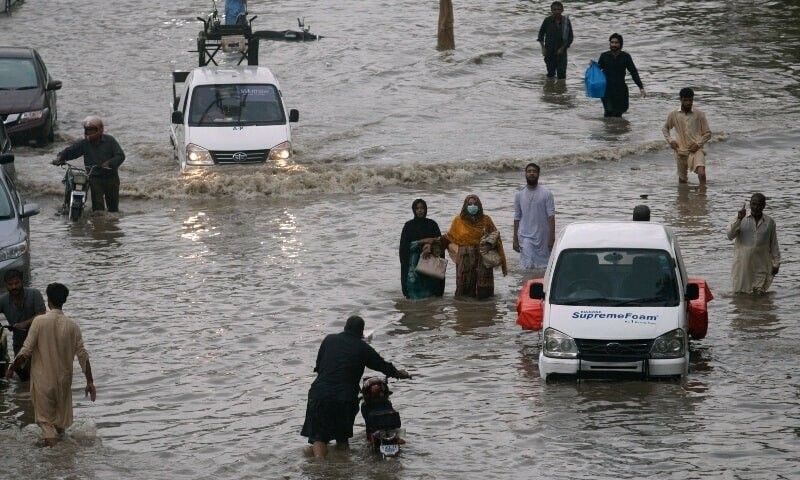ISLAMABAD: Dozens of people have been killed and injured in rain-related incidents in Khyber Pakhtunkhwa, the provincial disaster management authority in the province said. It said that 44 people have been killed and around 88 injured in the rain-related incidents. The death toll reported as Pakistan’s National Disaster Management Authority (NDMA) predicted more rainfall and thundershowers in the Khyber Pakhtunkhwa, as monsoon downpours continue to lash areas of the South Asian country. The NDMA also advised people to stay informed by keeping track of weather updates and alerts via the “Pak NDMA Disaster Alert Application” which gives timely alerts, and guidelines to the public.
In a statement, the International Rescue Committee (IRC) said that it is also preparing to scale up its response in Pakistan, where looming rains pose key threat to the lives and livelihoods of many. The statement added that with many of the communities at risk in Sindh and Balochistan still trying to rebuild following the unprecedented floods of July 2022, major preparation is need to ensure that the devastation caused by the 2022 floods is avoided. In 2022, heavy rains triggered floods in many areas of Pakistan, killing more than 1,700 people, inflicting losses of about $30 billion, and also affecting 30 million people.
The South Asian country is recognized as one of the most vulnerable nations to climate change effects worldwide. Earlier, a UN official warned that an estimated 200,000 people in Pakistan could be suffered by the current monsoon season.
In the statement, the IRC said that the expected floods could lead to waterborne diseases, displace families and disrupt agricultural activities from their houses. In response to these challenges, the IRC has mobilized its emergency teams to provide immediate support and relief. It added that this will include health services, cash assistance, protection, water and sanitation support and the delivery of emergency supplies to assist communities address the challenge of flooding. The statement maintained that response will focus on girls and women, people with disabilities, as well as minority groups, including Afghan refugees who have been affected by the floods and their host communities.
Shabnam Baloch, IRC Pakistan Director, said that it was impossible to forget the widespread destruction caused by the flooding of 2022. She said that the IRC remains committed to working alongside local officials and communities to mitigate the impact of natural disasters as well as build sustainable resilience in Pakistan – but this is only one part of the solution. She further said that the world must increase its support for humanitarian efforts in the South Asian country, recognizing the significant and long-lasting impact that a disaster can have on the generations to come.
The NDMA also issued instructions to all relevant departments to take essential precautions to mitigate the possible effects of floods and extreme weather in the country


























